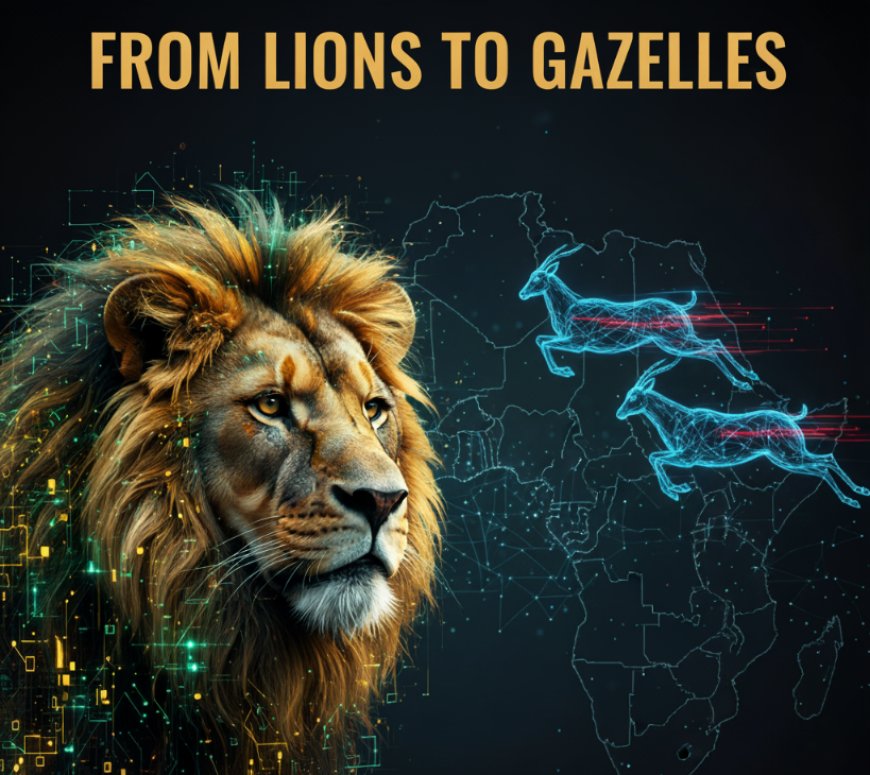From Lions to Gazelles: A Comparative Analysis of Cybersecurity Maturity in South Africa, Ghana, and Zimbabwe
An in-depth analysis of the cybersecurity markets in South Africa, Ghana, and Zimbabwe, exploring the unique drivers, key players, and maturity levels that define each nation's digital defense landscape.

Africa's digital transformation is not a monolith; it's a vibrant savanna of diverse ecosystems, each evolving at its own pace. Nowhere is this more evident than in the cybersecurity industry. While the entire continent faces a rising tide of digital threats, the maturity, complexity, and focus of the cybersecurity markets in key nations vary dramatically.
By examining three distinct markets—South Africa, Ghana, and Zimbabwe—we can see a clear evolutionary path. South Africa stands as the established "Lion," a mature market with a complex and deeply entrenched ecosystem. Ghana is the "Agile Gazelle," a dynamic, fast-growing market characterized by rapid movement and a focus on building capacity. And Zimbabwe represents the "Young Gazelle," an emerging market rapidly finding its footing, driven by powerful new regulatory catalysts. This comparative analysis reveals the unique drivers, provider landscapes, and strategic imperatives shaping the defense of Africa's digital frontier
The Lion: South Africa's Mature and Complex Ecosystem
South Africa's highly digitized economy makes it both a continental leader and a prime target for cybercrime, with digital banking fraud alone costing consumers over R1 billion in 2023. This high-threat environment has cultivated the most sophisticated cybersecurity market of the three.
- Primary Driver: Assumed Compliance: The Protection of Personal Information Act (POPIA) has been in full effect since 2021, making compliance a baseline expectation, not a differentiator. The market has moved beyond basic compliance to address the "how" of security, focusing on advanced threat detection and response to counter persistent ransomware and fraud attempts.
- Provider Landscape: A Stratified Market: The ecosystem is highly developed and segmented. It features global giants like Orange Cyberdefense (which absorbed the world-renowned local hacking firm SensePost), telecommunications behemoths like Vodacom Business with integrated security offerings, and a tier of elite local specialists like Nclose and Telspace Africa known for their deep offensive security expertise. The conversation here is dominated by advanced managed services like Managed Detection and Response (MDR) and Extended Detection and Response (XDR), offered by innovators like Performanta.
- Strategic Imperative: Best-of-Breed Procurement: The market's maturity allows organizations to adopt a "best-of-breed" strategy. A large enterprise might use a global provider for its 24/7 Security Operations Center (SOC) while engaging a specialized local boutique for a rigorous, no-holds-barred red team assessment. The focus is on specialized excellence and scalable, technology-driven security outcomes.
The Agile Gazelle: Ghana's Dynamic and Growth-Oriented Market
Ghana represents a market in rapid motion. With Accra emerging as a major regional tech hub for global players, the digital economy is expanding quickly, creating a parallel need for robust security infrastructure and, crucially, the talent to manage it.
- Primary Driver: Building Capacity: While the Data Protection Act of 2012 provides a regulatory foundation, the market is equally driven by a recognized skills gap. This has created a unique landscape where providing security services and building human capital are intertwined missions.
- Provider Landscape: A Dual Focus: The market features a blend of capable local specialists like Virtual Infosec Africa, which runs an ISO 27001-certified SOC, and large IT conglomerates like IPMC Ghana. However, the standout characteristic is the prominence of firms that are also leading educational institutions. Companies like Inveteck Global and e-Crime Bureau have built stellar reputations not just for their consulting, but for their intensely practical training programs that are producing the next generation of Ghanaian cyber defenders.
- Strategic Imperative: Foundational Partnerships: The focus in Ghana is on building and strengthening the core of its cyber defense. The most valuable providers are those who can deliver foundational, high-quality managed services (like a 24/7 SOC) while also contributing to the long-term health of the ecosystem through training and skills development.
The Young Gazelle: Zimbabwe's Emerging and Regulation-Driven Market
Zimbabwe's cybersecurity market is in a period of rapid, catalyst-driven growth. While smaller than the other two, its evolution is being supercharged by one of the most significant market drivers possible: new, stringent legislation.
- Primary Driver: Urgent Compliance: The Cyber and Data Protection Act (CDPA) of 2021 is the market's primary engine. Its demanding requirements, such as a 24-hour data breach notification window, have created an immediate and urgent need for specialized legal and technical expertise that most organizations do not possess internally.
- Provider Landscape: The Rise of the Specialist: The market is composed of award-winning pure-play firms like Acute Cybersecurity Services and established IT providers like Kenac Computer Systems that are integrating security into their offerings. However, the most telling feature is the emergence of hyper-specialized firms like StoneGuard, whose entire business model is a direct response to the CDPA, offering "Data Protection as a Service" tailored specifically to the new law. The current demand is centered on GRC advisory, policy development, and foundational technical assessments.
- Strategic Imperative: Navigating New Rules: For businesses in Zimbabwe, the immediate priority is understanding and meeting their new legal obligations. The most sought-after cybersecurity partners are those who can act as expert guides through the complexities of the CDPA, making regulatory expertise the most valuable currency in this emerging market.
Synthesizing the Savanna: A Clear Path of Evolution
Comparing these three nations reveals a clear cybersecurity maturity gradient. The journey begins with a powerful regulatory push that creates a demand for compliance and foundational security (Zimbabwe). It then progresses to a growth phase focused on building out core infrastructure like SOCs and addressing the human skills gap (Ghana). Finally, it arrives at a mature stage characterized by a highly competitive, specialized market where the focus is on advanced, technology-driven security outcomes (South Africa).
Despite their differences, a common thread runs through all three: the universal demand for managed services to combat the global skills shortage and the role of national legislation as a powerful catalyst for investment. As the gazelles continue their rapid sprint, they will likely follow the lion's path, developing deeper specializations and more sophisticated service offerings. For now, each market presents a unique and compelling picture of a continent actively forging its digital shield.
What's Your Reaction?
 Like
0
Like
0
 Dislike
0
Dislike
0
 Love
0
Love
0
 Funny
0
Funny
0
 Angry
0
Angry
0
 Sad
0
Sad
0
 Wow
0
Wow
0









































